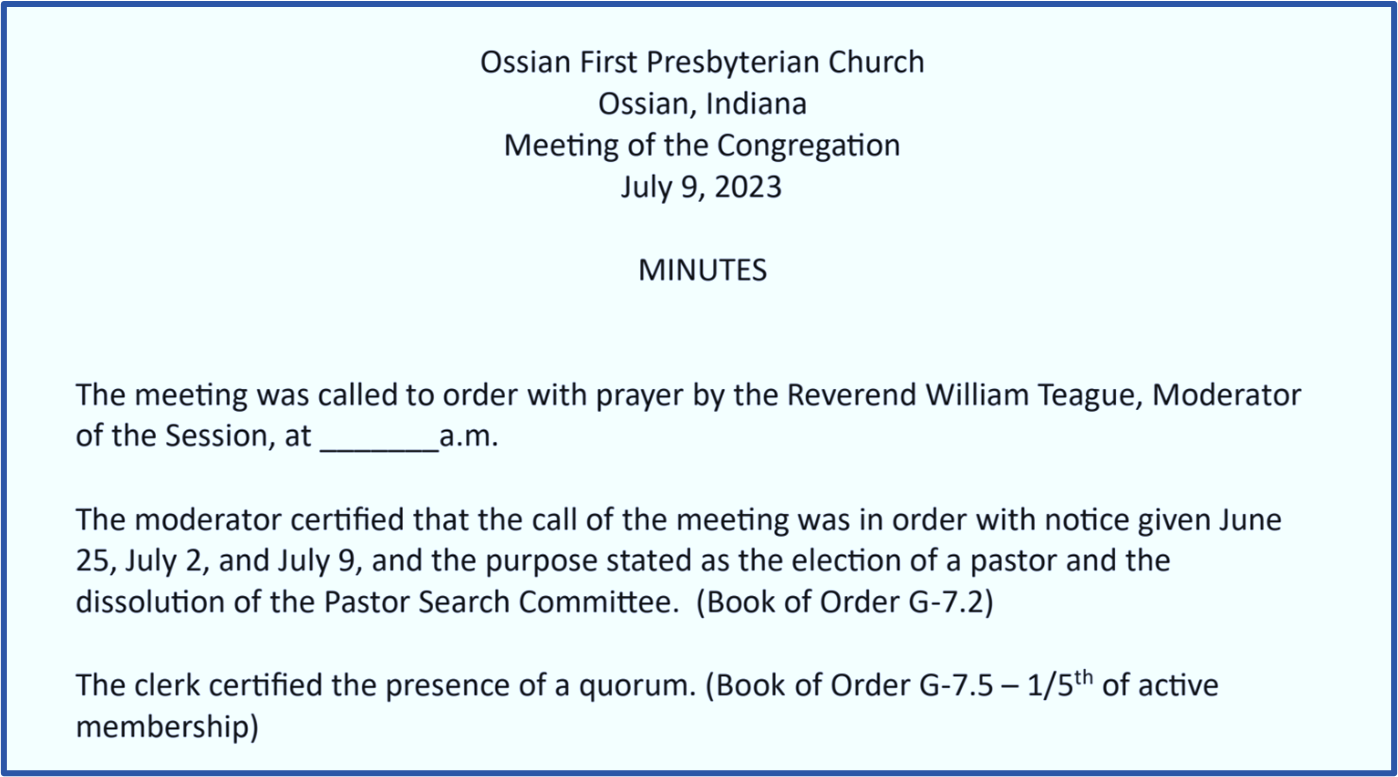
The minutes of Sunday’s meeting of the congregation have already been written. They show the call to the new pastor being approved and the meeting closed with prayer and thanksgiving to God.
Before any stated clerks, church polity wonks, or parliamentarians among you get too anxious or begin to file charges against me, let me explain.
The church I have been serving during a season between pastors is now ready to call a new pastor. This is a very good thing, and we perceive God’s gracious hand in bringing a wonderful candidate to what Becky and I have grown to know and love as a wonderful congregation.
Presbyterians like to say of ourselves that “we do everything decently and in order.” The phrase is mostly used self-mockingly and usually evokes a sense of mild (or forced) amusement when said at a presbytery meeting. In fact, the phrase comes from the Bible in Paul’s first letter to the Corinthians and at the end of a long discussion about the right and the wrong way to worship. Having reminded his readers that God is not a God of confusion but of peace, he writes, “All things should be done decently and in order.” 1 Corinthians 14:40 (ESV) Continue reading




